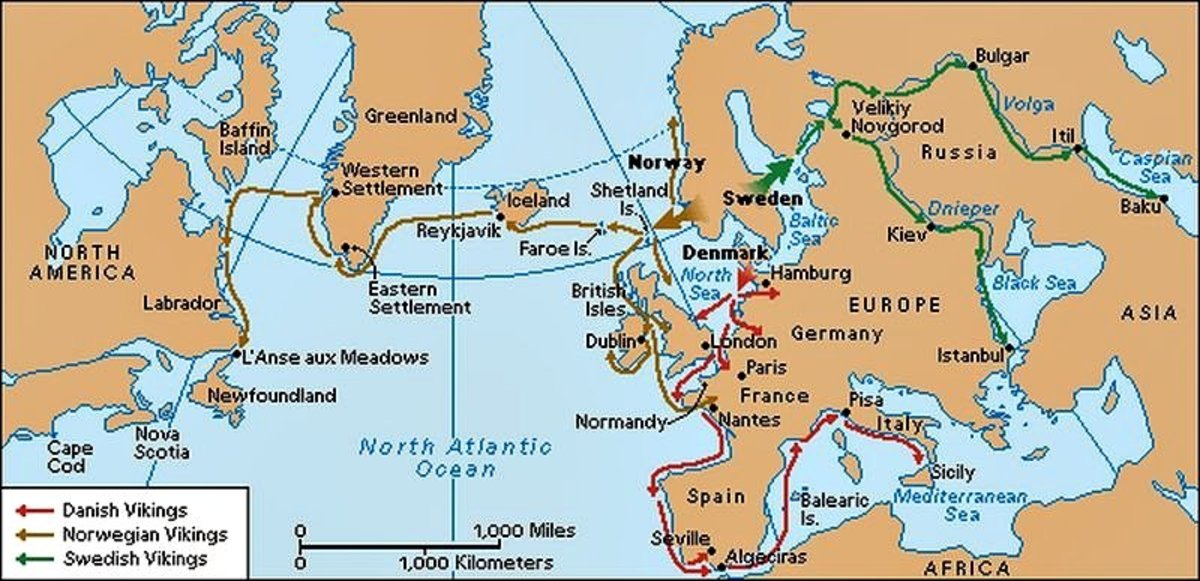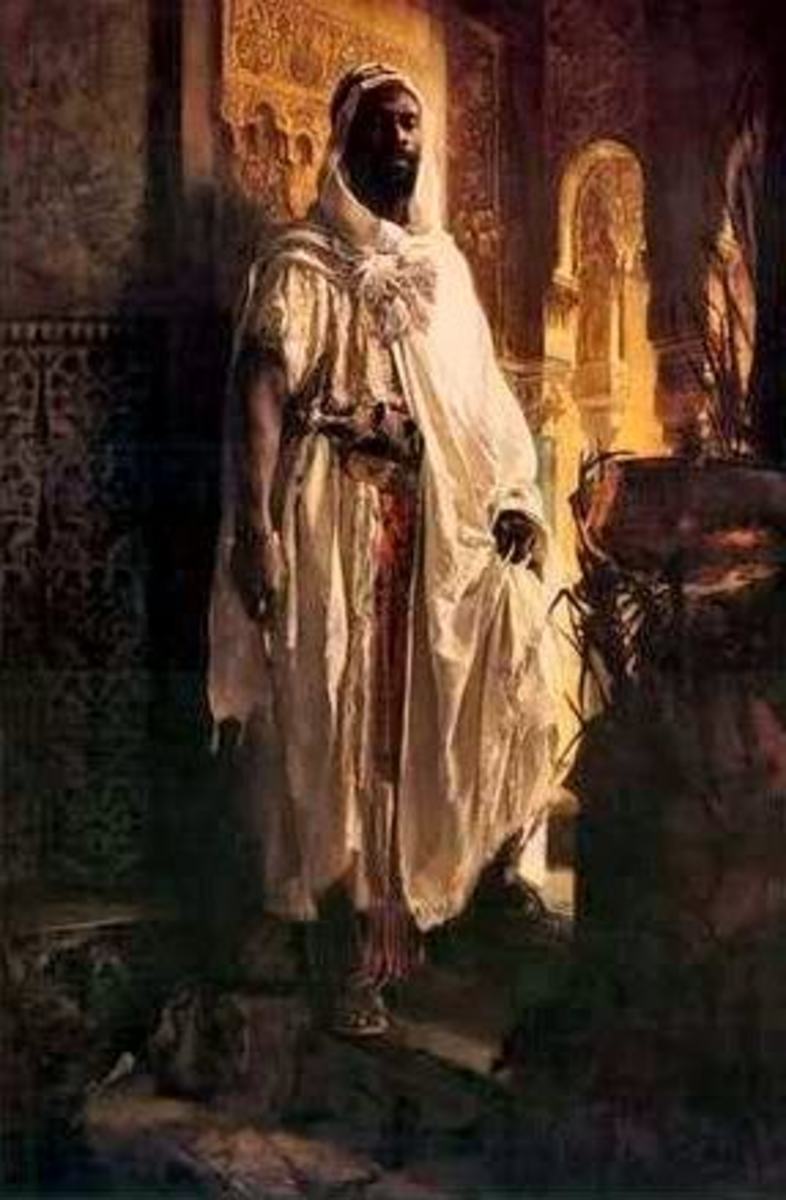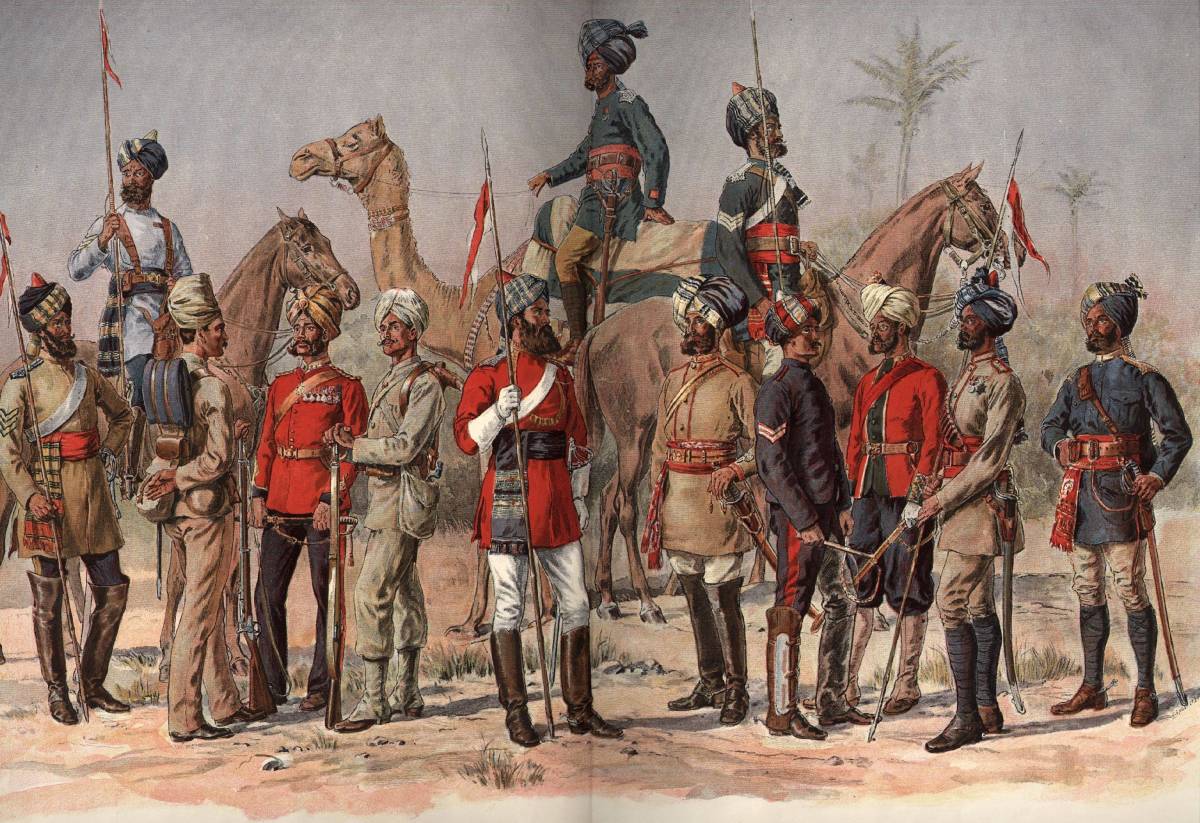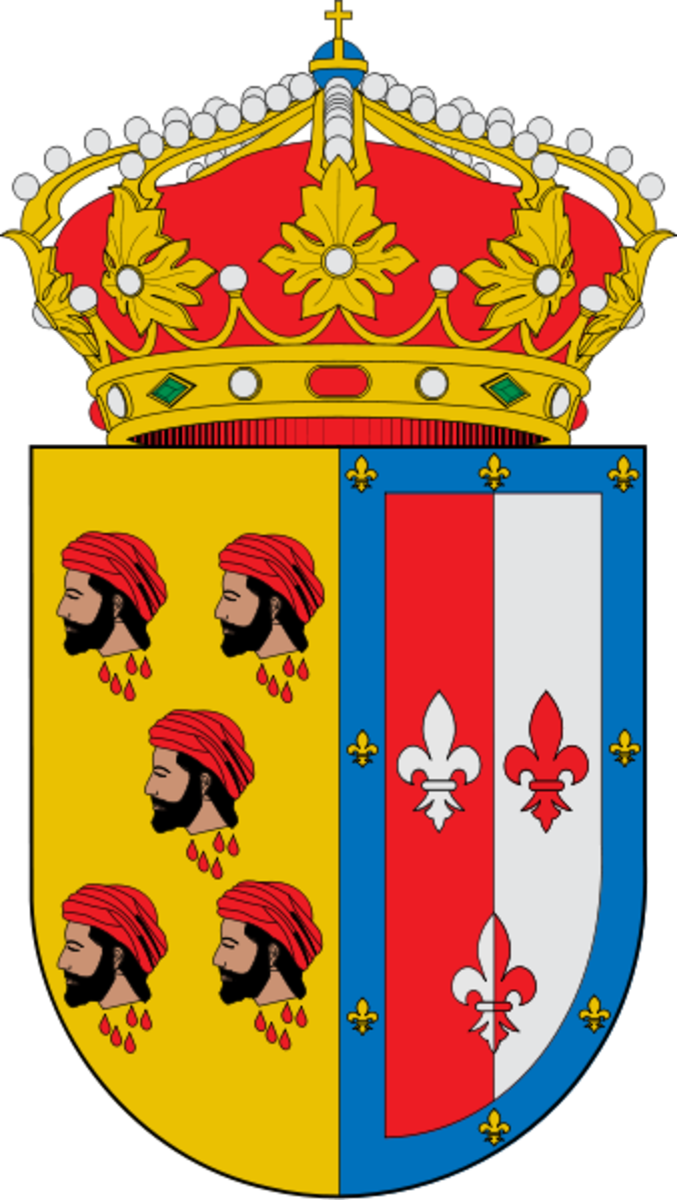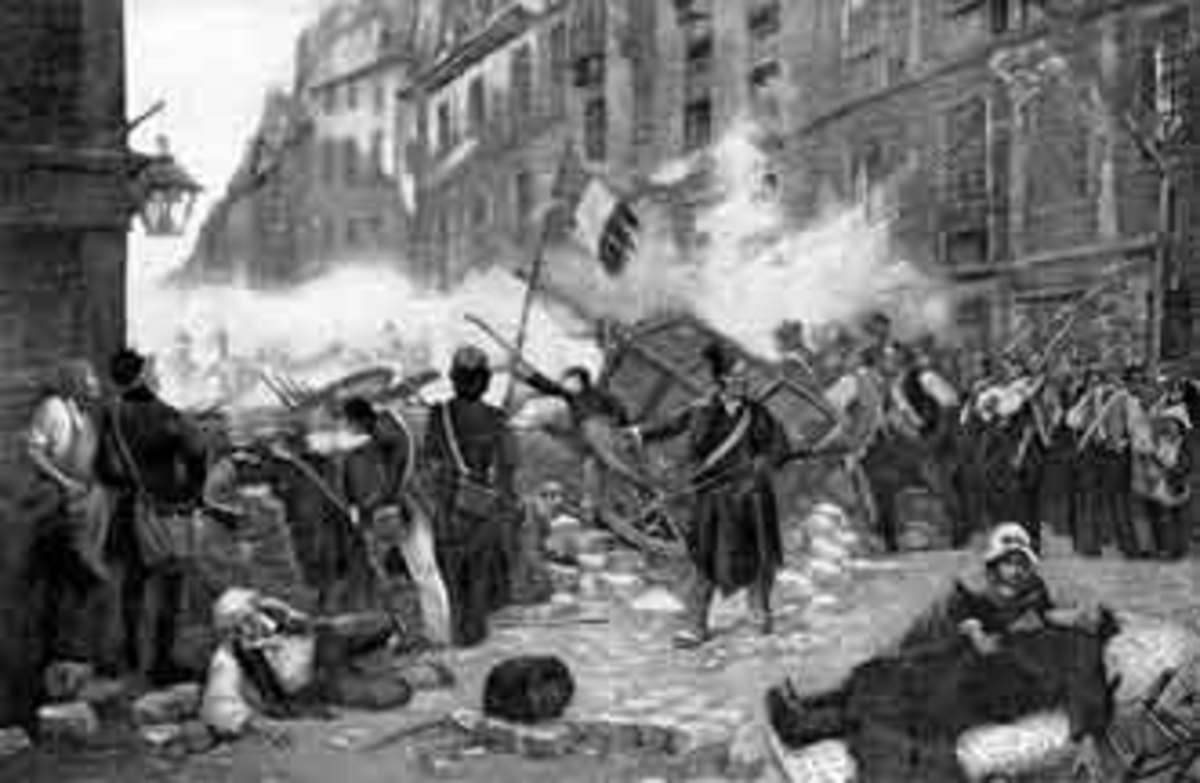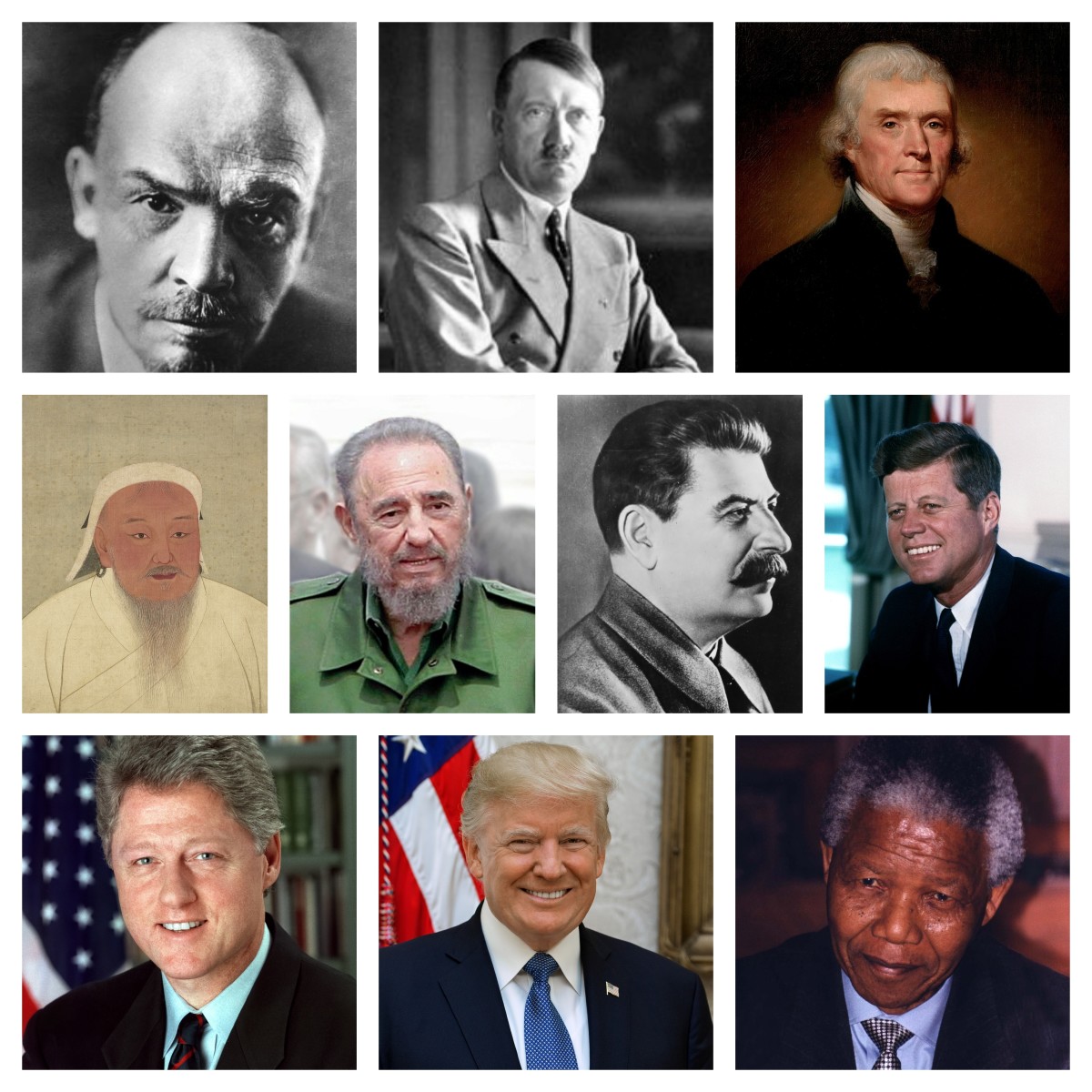Defining Nationalism: Issues of 20th Century Muslim Leaders
After World War II, Islamic South Asia and North Africa began to nationalize, separating from European regimes and creating their own identity. South Asia and North Africa, specifically India and Egypt, were confronted with several issues during the process of nationalizing, the most prominent being the struggle to adopt Western values of modernization while remaining true to Islam; in India the struggle was internal, while in Egypt, the struggle was with the surrounding Islamic cultures.
The struggle to modernize while remaining true to Islam was internal in India. Until 1947, the British occupied India. The years before the British removal were fraught with nationalist anxiety. The British had successfully integrated Western education and thought into Indian society, and the Western ideas of modernization, nationalism, and independence began to develop in the Indian peoples minds. Great thinkers like Gandhi emerged who wanted the British out so India could begin piecing together its own national identity. However, although most Indians could agree on the British leaving, opinions on what India would look without the Brits were polarized. India’s two largest demographics, Muslims and Hindus, raged over doctrinal disputes and whether the country should be led with Britain’s Western ideals, including modernization and education. The image of post-colonial India was black and white; neither side would go into the grey. Syed Ahmad Kahn, a Muslim-Indian educator in 1900, tried to persuade his fellow Muslims that accepting Western innovation did not require renouncing Islam. “If the choice were to lie between giving up and preserving Islam, I would have unhesitatingly chosen Islam. That, however, is not the choice. The adoption of the new system of education does not mean the renunciation of Islam. It means its protection…Europe has made such remarkable progress in science that it would be suicidal not to make an effort to acquire that knowledge. How can we remain true Muslims if we sink into ignorance?” Abul Kalam Azad, an Indian Muslim leader who was imprisoned several times by the British for political activism, was angered by the conflict and urged Muslims to compromise and find a middle ground. “It drives me mad today to see the deplorable sight among Muslims where there are only two kinds of leaders. For the traditionalists, there are the ulama, for the modernist group, the Western-educated intellectuals. Both are ignorant of religion and both are paralyzed limbs of the community. The first group is beset by religious superstitions, prejudices, and stagnancy, while the other is caught in atheism, imitation of the West, and love of power and position.” Azad found the ancient Islamic scholars, the ulama, to be too backward thinking, while the Western educated leaders were too secular. He desired a middle ground that would bring India into the twentieth century without sacrificing Islam. Most Muslims believed that reality was impossible. When England finally pulled out of India in 1947, the reality was clear. A decision must be made, and it must be made now. Tensions were so high that the Muslims and Hindus broke out into battle. Eventually, after multiple deaths, including Gandhi’s assassination, the Islamic portion of India broke off to form the country Pakistan, leaving India to mold its national identity into one that attempted to meld the best of both East and West.
In North Africa, the struggle to find the balance between East and West was amongst the various North African nations surrounding Egypt. Because several European powers, the Dutch, the French, the British, and the Germans, all attempted to colonize Africa, there were many more, albeit less dichotomous, cultural distinctions between the countries of North Africa than in India, which strengthened African Muslims desire for nationalism to create a sense of unity. Mofudi Zakaria, an Algerian nationalist said, “Every Muslim in North Africa, believing in the oneness of North Africa, believing in God and in his Prophet, is my brother and shares my should. I make no distinction between a Tunisian, an Algerian, or a Moroccan; nor between a villager and a city dweller, a settled person and a nomad…Our fatherland is North Africa. Uniting us with it for eternity are the links of language, of Arabness, and of Islam.” Like Indian Muslims, North African Muslims attempted to separate themselves from the Europeans, although unlike Indian Muslims, they desired to integrate European principles and innovation into their society. Taha Husayn, a Muslim literary figure and Egyption nationalist said, “We Egyptians must not assume the existence of intellectual differences, weak or strong, between the Europeans and ourselves or infer that the East mentioned by Kipling in his famous verse “East is East and West is West, and never the twain shall meet” applies to us or our country. We want to be like the European nations in military power in order to…be able to say to our English friends, ‘Thank you, you may go, for we can now defend the Suez Canal.’ We also need economic independence…of Europe and America. We must, therefore, use the same means that the Europeans and Americans use to defend their national economies.” Husayn did not want tension between North Africa and the West. He desired friendship, while firmly maintaining Egyptian independence, making Europe a peer rather than an oppressor. While separating themselves from Christendom, North Africa also desired to separate themselves from the rest of the Middle East. Desiring to be free from any regime, including the overarching label of “Islam” (similar to that of “Christendom”) Ahmad Lufti as-Sayyid, founder of the Egyptian People’s Party said, “Among our forefathers were those who maintained that the land of Islam is the fatherland of all Muslims. However, that is a colonialist formula used to advantage by every colonizing nation that seeks to expand its possessions and to extend its influence daily over neighboring countries. Today, the Islamic formula has no reason to exist. We must replace this formula with the only doctrine that…possesses a clearly defined sense of the fatherland. That doctrine is nationalism…Our Egyptian-ness demands that our fatherland be our quibla and that we not turn our face to any other.” In his statement, as-Sayyid recalls previous Muslims who maintained that “Islam” is the fatherland of Muslims all over the world. Accusing that ideal as being nothing more than an imperialist tool to extend influence and power, as-Sayyid calls Egyptian Muslims to step into the future and make Egypt their fatherland. North Africa had the unique struggle, during nationalization, of separating from Europe and the Middle East, while unifying the surrounding North African Muslim nations.
Throughout the process of nationalization, South Asia and North Africa experienced many issues and struggles. In South Asia, the struggle was internal with two, dichotomous religions battling over religious and political ideals. In North Africa, the struggle was unifying the surrounding Muslim territories, while separating from the colonialist European and Islamic worlds. Both regions overcame their struggles and were able to discover their national identities and become independent, finding their place on the world map apart from an oppressive power.

